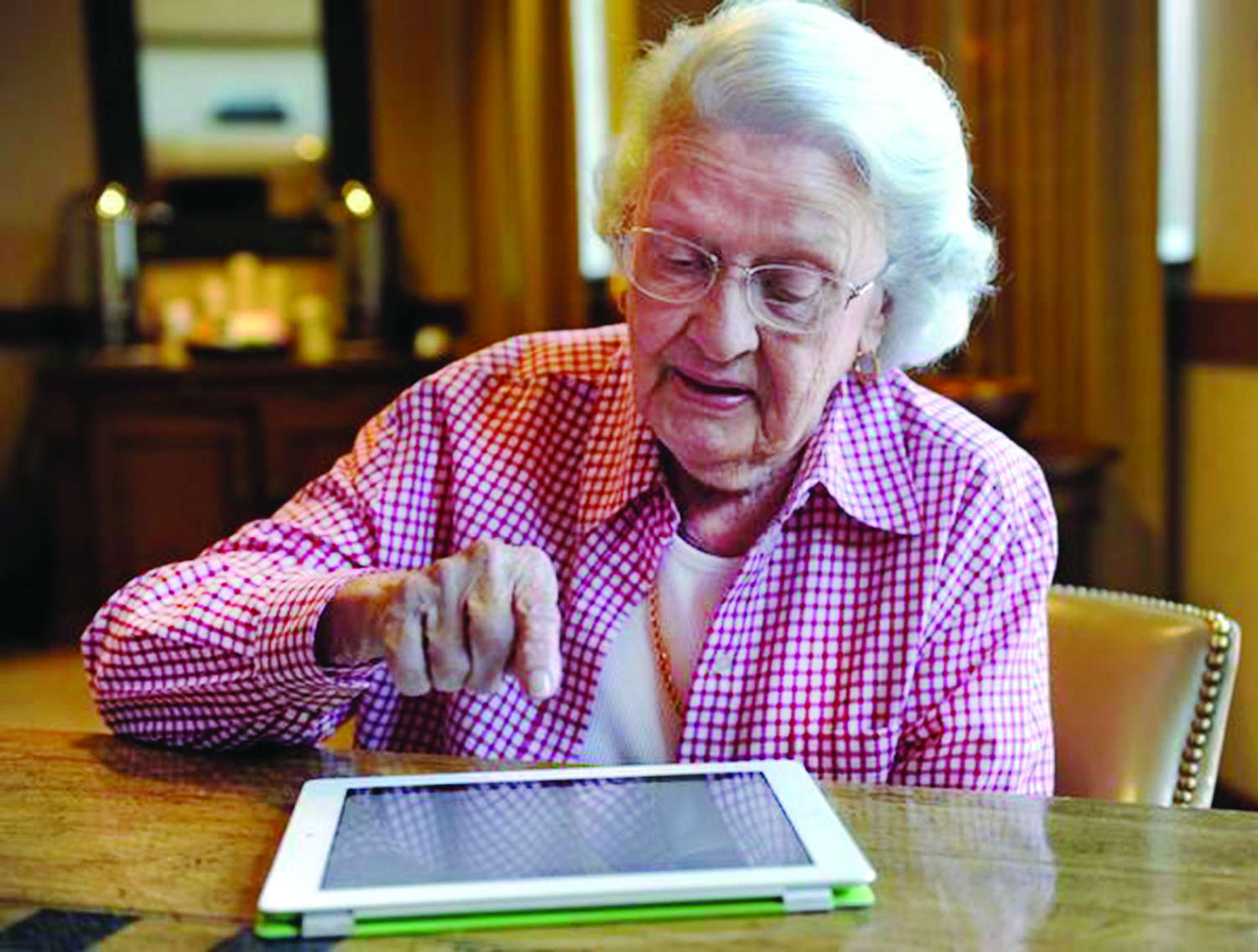Seniors are often lonely – but you can help
BY NAOMI FINK COTRONE
At the end of a day alone, I’m often at a loss for words. Maybe you know what I mean. Whether I’m home sick, left behind in the wake of my teenagers’ full schedules, or even just traveling alone all day from point A to point B, if I don’t speak to anyone all day, I turn inward. And when I finally do talk to someone familiar, I basically have to unload everything that’s been pent up – even while I am somehow less articulate than usual.
It is in these moments that I can’t help but wonder: if this is how I feel after just 12 hours on my own, what must it be like for those who spend days – even weeks – without meaningful human interaction?
A recent article in Forbes drew my attention to research from the Journal of the American Medical Association that found that 43 percent of older adults report feeling lonely at times. And a 2013 study in the Proceedings of the National Academy of Sciences found that social isolation and loneliness are associated with a higher risk of mortality.
But most of us don’t need these numbers to elucidate the point – we can all think of an older or disabled person in our lives who needs more visitors or warm check-ins.
“Whether it is a single individual, a widow, or a senior whose partner is in a long-term care facility, without a constant and reliable team of caregivers and professionals assisting these seniors, they often become forgotten,” said Samantha McCarthy, of McCarthy Law, an estate planning and elder-law attorney licensed in Rhode Island and Massachusetts.
“I think in our society, the way it is today, with everyone leading busy lives and the increased use of technology to communicate, we see less person-to-person interaction,” she continued.
For many of my clients, I can tell that when there are swaths of time in which they are alone, the loneliness can manifest in increased depression, anxiety and feelings of isolation.
And let’s always be careful not to deal with our elderly loved ones as though they are a burden. Remember that Jewish tradition says, “a grandparent in the home is a jewel.”
While there are apps and digital platforms that do a lot for many people, I’m a proponent of some old-fashioned tactics for checking in on those at risk for loneliness and helping them to create more social interactions.
I often advise friends and family to set recurring calendar reminders to visit or call loved ones. And for those who prefer more low-tech methods, try creating a visual clue to trigger a reminder to call. For example, every time you pass that billboard, you call Grandma.
You can also encourage social interactions by checking out the Jewish Alliance of Greater Rhode Island’s calendar, which shows plenty of events in the community. You also have many options for arranging for transportation for your elderly loved ones. Uber, for example, is a great option for those who can’t drive but are otherwise able. And don’t overlook agencies that provide transportation and light companionship. Lastly, you’ll get extra mensch points if you buy Bubbe an iPad and set it up for FaceTime.
But the most important advice I can give is that being there for your elderly loved ones is what helps the most. So if every phone call begins with a guilt trip about you not calling more often, just take a deep breath, let it roll off your back, and reiterate how good it is to hear their voice.
NAOMI FINK COTRONE runs the Right at Home of Rhode Island agency, which provides care to elderly and disabled adults throughout Rhode Island. She became involved with seniors after caring for her grandmother, which gave her a deep understanding of the importance of good care at this life stage.








